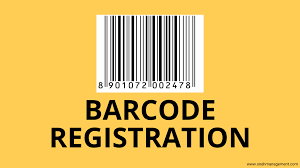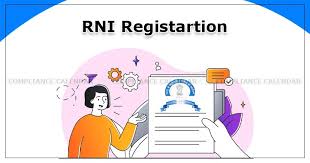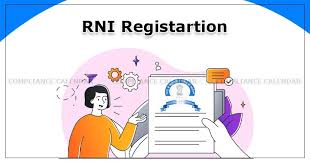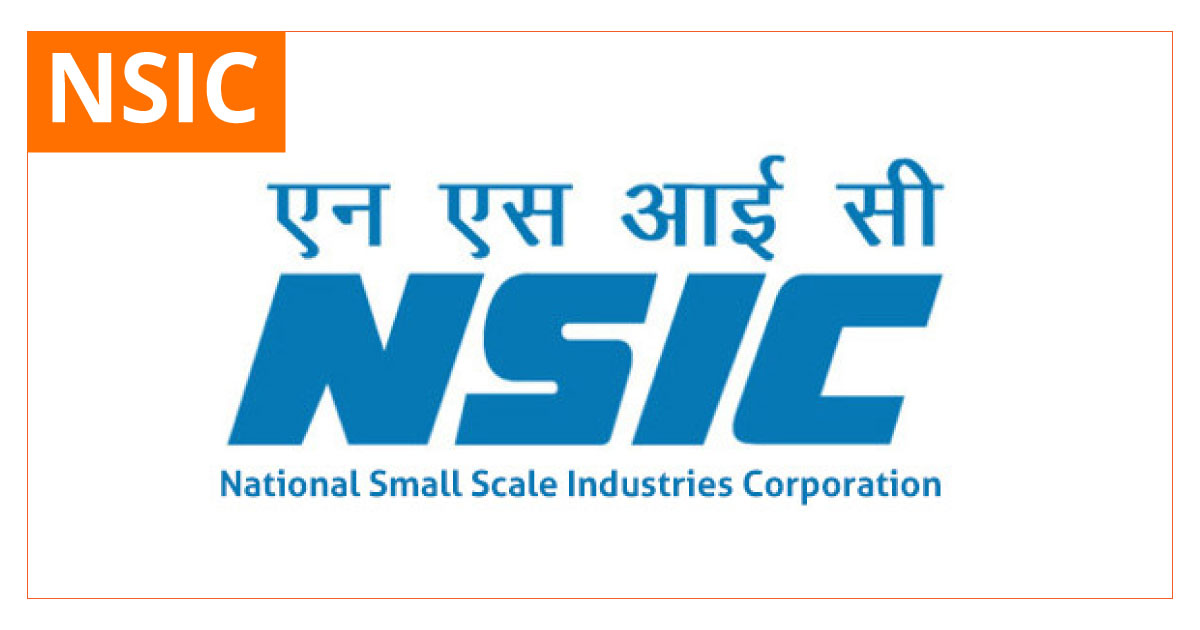Unlocking Global Trade: The Ultimate Guide to Barcode Registration for Your Business

Strong 8k brings an ultra-HD IPTV experience to your living room and your pocket.
In today’s interconnected marketplace, efficient product identification is decisive. Barcode registration serves as a key tool in streamlining supply chains, enhancing inventory management, and enabling seamless transactions across industries. Whether you're a small startup or an established corporation, understanding how to register barcodes can significantly impact your business’s reach and operational efficiency.
This guide breaks down everything you need to know about barcode registration, from its importance to the step-by-step process involved. Let's descent into the world of barcodes and discover how they can unlock global trade opportunities for your business.
1. What is Barcode Registration?
Barcode Registration refers to the process of obtaining a unique, scannable code for your products. These codes store vital information, such as product type, manufacturer, and pricing, in a machine-readable format. The most commonly used barcodes are UPC (Universal Product Code) and EAN (European Article Number).
Barcodes are essential for retailers, wholesalers, and logistics companies to identify, track, and manage goods efficiently. Registering your barcode confirms that your products are globally recognized and uniquely identifiable in any marketplace.
2. Why is Barcode Registration Important for Your Business?
Barcode registration isn't just a technical formality—it’s a strategic business decision. Here's why:
Global Recognition: Registered barcodes are universally accepted, making it easier to distribute products worldwide.
Inventory Management: Barcodes simplify tracking, allowing businesses to monitor stock levels and reduce errors.
Retail Compliance: Many retailers require registered barcodes before accepting products onto their shelves.
Enhanced Credibility: Registered products reflect professionalism, increasing trust among consumers and business partners.
Sales Efficiency: Barcodes speed up transactions at points of sale, improving customer experience.
3. Types of Barcodes You Can Register
Different industries and regions use specific barcode formats. Here are the most common types:
UPC (Universal Product Code): Popular in the United States and Canada, ideal for retail goods.
EAN (European Article Number): Used globally, particularly in Europe, for retail and wholesale distribution.
QR Codes (Quick Response): Two-dimensional barcodes used for marketing, product information, and mobile payments.
Code 128: High-density barcode suitable for shipping and logistics applications.
ISBN (International Standard Book Number): Unique identifiers for books and publications.
4. Understanding GS1: The Global Barcode Authority
GS1 (Global Standards 1) is the non-profit organization responsible for maintaining barcode standards worldwide. When you register a barcode, you're typically doing so through a GS1 Member Organization in your country.
Registering with GS1 confirms your barcodes are globally unique and compliant with international standards. This is especially important if you plan to sell products through major retailers or online platforms like Amazon.
5. Step-by-Step Guide to Barcode Registration
Ready to register your barcodes? Follow this simple process to get started:
Step 1: Apply for a GS1 Company Prefix
The Company Prefix is a unique identifier assigned to your business. It forms the foundation of all your product barcodes.
How to Apply: Visit your local GS1 Member Organization’s website and complete the application.
Cost: The fee varies based on company size and the number of products, but it typically includes an initial registration fee and an annual renewal fee.
Step 2: Assign Product Numbers
After receiving your Company Prefix, you’ll assign unique numbers to each product. These numbers, combined with the prefix, create the Global Trade Item Number (GTIN).
Step 3: Generate Barcodes
Using your GTINs, generate the barcode images. GS1 offers tools to help with this, or you can use barcode generation software.
Step 4: Register Your Barcodes
Once your barcodes are generated, they need to be registered with GS1. This step confirms your codes are globally recognized.
Step 5: Print and Apply Barcodes
Print your barcodes on product packaging. Confirm they are scannable and placed correctly according to GS1 guidelines.
6. How Much Does Barcode Registration Cost?
The cost of barcode registration depends on several factors:
Company Size: Larger companies with extensive product lines may face higher fees.
Number of Products: The more products you need barcodes for, the higher the cost.
GS1 Membership Fees: Includes both an initial fee and an annual renewal fee.
On average, barcode registration through GS1 can range from $250 to $750 initially, with annual renewal fees between $50 and $150.
7. Common Mistakes to Avoid During Barcode Registration
Avoid these pitfalls to guarantee smooth barcode registration:
Not Registering with GS1: Some businesses opt for cheaper, non-GS1 barcodes, but these may not be accepted by major retailers.
Incorrect Barcode Placement: Poor placement can cause scanning issues, leading to delays at checkout.
Duplicate Barcodes: Confirm each product has a unique barcode to prevent inventory confusion.
Ignoring Renewal Fees: Failing to renew your GS1 membership can invalidate your barcodes.
8. Barcode Registration for Online Marketplaces
If you're selling online, barcode registration becomes even more critical. Platforms like Amazon, eBay, and Walmart require GTINs for product listings. Without registered barcodes, your listings may be rejected or face visibility issues.
Confirm your barcodes are properly registered with GS1 to avoid these complications and make your products easily searchable and credible in digital marketplaces.
9. Benefits of Registered Barcodes in Global Trade
Having registered barcodes provides numerous advantages in the international marketplace:
Faster Customs Clearance: Barcodes streamline customs procedures, reducing delays in shipping.
Global Supply Chain Integration: Registered barcodes Confirm compatibility with international logistics systems.
Reduced Counterfeiting Risks: Unique, registered barcodes protect against counterfeit products.
Improved Data Accuracy: Barcodes reduce manual entry errors, confirming accurate data across the supply chain.
10. How to Verify a Barcode: Barcode Lookup and Validation
Once you’ve registered your barcodes, you can verify their authenticity through a barcode lookup. This Confirm s your products are correctly listed and recognized in global databases.
GS1 Database: Check your barcode in the GS1 Global Electronic Party Information Registry (GEPIR).
Retailer Systems: Major retailers have their own systems to verify barcodes during product intake.
Online Tools: Various online platforms allow you to enter a barcode and verify its details.
11. Barcode Registration for Small Businesses
Even small businesses benefit significantly from barcode registration. Here’s why:
Professionalism: Barcodes make your products look polished and retail-ready.
Efficiency: Simplify inventory management and reduce manual tracking.
Market Access: Gain access to larger markets and online platforms that require barcodes.
For small businesses concerned about costs, GS1 offers affordable options tailored to smaller product ranges.
12. Barcode Registration for Different Industries
Barcodes are not limited to retail. Here’s how various industries use them:
Retail: For product identification and point-of-sale transactions.
Healthcare: To track medical supplies, prescriptions, and patient information.
Logistics: For tracking shipments and managing warehouse operations.
Publishing: ISBN barcodes for books and periodicals.
Food Industry: For traceability and compliance with food safety regulations.
13. Do You Need to Renew Your Barcode Registration?
Yes, barcode registration through GS1 typically requires annual renewal. This Confirm s your barcodes remain active and globally recognized. Failing to renew may result in deactivation, making your products non-compliant in many retail and online environments.
14. Frequently Asked Questions (FAQs)
1. Can I create my own barcode without GS1 registration?
While you can generate a barcode without GS1 registration, most major retailers and online platforms require GS1-registered barcodes to Confirm global uniqueness and compliance.
2. How long does it take to register a barcode?
The registration process can take a few days to a couple of weeks, depending on the speed of application processing and verification.
3. Do I need a separate barcode for each product variant?
Yes, each variant (e.g., size, color, or flavor) requires a unique barcode to track inventory accurately.
4. Can I use the same barcode for multiple products?
No, each product must have a unique barcode to prevent confusion in inventory management and sales.
5. Are barcode registration fees a one-time payment?
No, GS1 registration normally involves an initial fee and an annual renewal fee to maintain barcode validity.
15. Final Thoughts on Barcode Registration
Barcode registration is more than just a technical requirement; it’s a powerful tool for growing your business globally. Whether you're a small startup or an international brand, barcodes Confirm efficient product tracking, inventory management, and retail compatibility.
Investing in registered barcodes through GS1 increases your product’s credibility, improves operational efficiency, and opens doors to new markets. Don’t miss out on the opportunities that barcode registration can unlock for your business in the global trade arena.
Note: IndiBlogHub features both user-submitted and editorial content. We do not verify third-party contributions. Read our Disclaimer and Privacy Policyfor details.







